News
Timeline: Haiti’s history and current crisis, explained
Going back through centuries of oppression, debt, and political instability to understand this current moment in Haiti’s history.
Read MoreA crisis that began in 2018 has spiraled into the near collapse of basic services and left nearly 50% of the country in need of humanitarian assistance. Here’s what you need to know.
Since 2018, Haiti has been the site of an ongoing crisis. At various points over the last six years, key moments have broken through into global media — such as the assassination of President Jovenel Moïse and a devastating earthquake centered in the Canal du Sud, both of which took place within weeks of each other during the summer of 2021 — and recent headlines about escalating gang violence in the capital of Port-au-Prince.
However, there is much more at stake beyond the headlines, and the burden of this protracted crisis is being felt by Haiti’s most vulnerable citizens, 5.5 million of whom require humanitarian assistance in 2024. Despite the increased needs, humanitarian funding has lagged in recent years, creating even more dire circumstances. Here’s what you need to know about the crisis in Haiti in 2024.
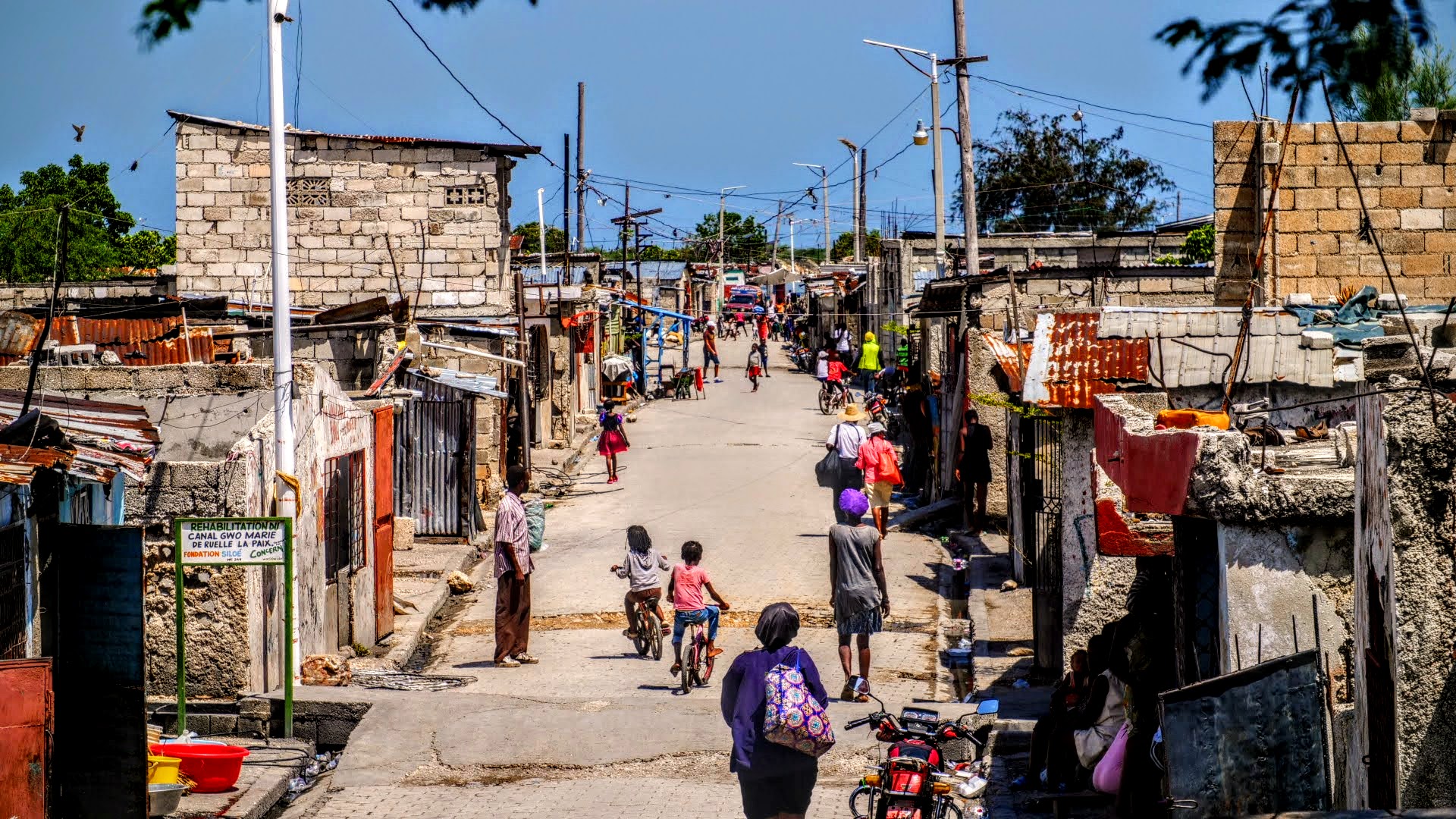
Fuel shortages began in Haiti in early 2018, with Venezuela stopping oil exports to the country that March. In the summer of 2018, the Haitian government halted subsidies on fuels, which led to price increases as high as 50%. This led to violent, at times deadly, protests that continued into 2019. By September of that year, the country had gone on lockdown, which lasted for two-and-a-half months.
During this time, the deteriorating security situation led to humanitarian organizations being blocked from reaching key areas, including those affected by increasing food shortages (which are also driven by climate change). Hunger levels in Haiti were exacerbated the following year due to COVID-19-related lockdowns. The economic impacts of these events have led to dramatic increases in food prices; one World Food Program report estimated that a working person in Haiti spent 35% of their income on one meal — which would be like someone in New York paying $74 for lunch.
In tandem with all of this, gang warfare in Port-au-Prince — particularly the city’s commune Cité Soleil — began to spiral out of control in 2022. These conflicts have resulted in widespread death, kidnappings, rape, property damage, displacement, hunger, and water and fuel shortages. UN Special Representative Helen La Lime summed up the situation in 2022: “An economic crisis, a gang crisis, and a political crisis have converged into a humanitarian catastrophe.”
“An economic crisis, a gang crisis, and a political crisis have converged into a humanitarian catastrophe.”
In 2023 — two years after the assassination of President Jovenel Moïse — the last of Haiti’s democratically-elected officials left office, effectively leaving the country without a functioning government in place, and creating a vacuum for more violence reaching into rural areas as well as urban. Last year alone, the UN recorded nearly 2,500 kidnappings and over 4,700 homicides. The UN notes that gangs now control approximately 80% of Port-au-Prince. In March of 2024, escalations in violence between armed gangs and police led to a state of emergency being announced and a curfew imposed.
“Everybody is traumatized and we are seeing increased numbers of people being forced to flee their homes — often bringing nothing with them — to escape the fighting,” says Concern Haiti Country Director Kwanli Kladstrup.”
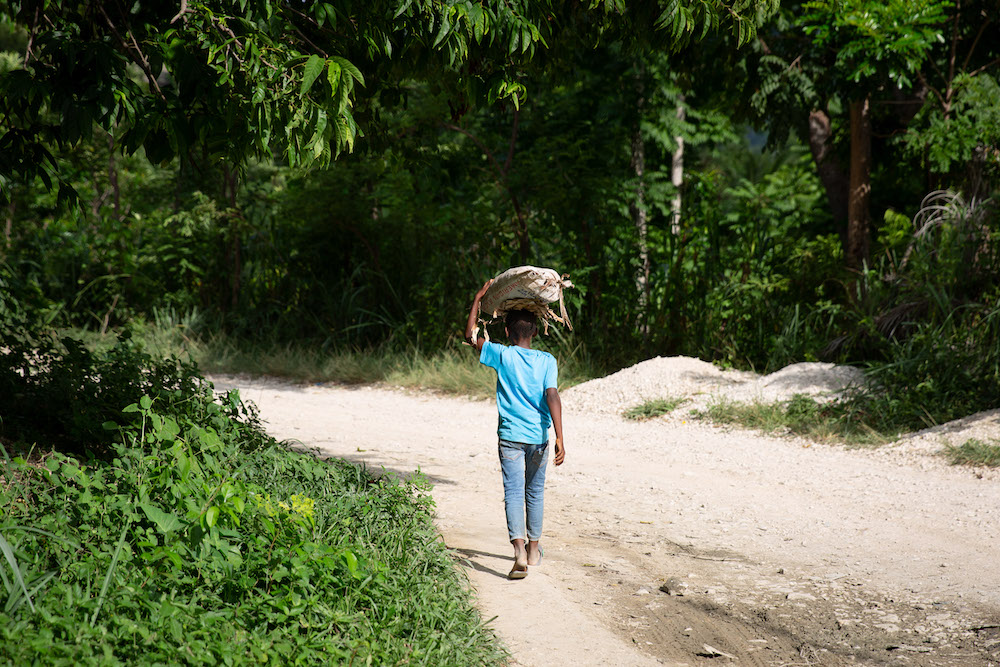
After nearly 13 years of conflict, Haiti gained its independence from France in 1804. Prior to that, the country formerly known as Saint-Domingue spent three centuries as a French slave colony where the average life expectancy of its enslaved peoples was just 21 years. The price of freedom, however, was steep: With the country’s plantations and infrastructure all but destroyed in the revolution, Haiti was also required to pay reparations to France in exchange for diplomatic recognition: 150 million gold francs, which France later reduced to 90 million (the equivalent today to nearly $20 billion).
Haiti paid these reparations to France from 1825 to 1947, taking out high-interest loans from American, German, and French banks to cover the cost (approximately 80% of its national budget each year). This cycle of debt put Haiti in a vulnerable context with regards to politics and leadership, and left everyday Haitians shouldering much of the financial burdens, passing on poverty from one generation to the next.
A minority of the population has benefitted from the creation of wealth, Concern Haiti Country Director Kwanli Kladstrup explained in 2019, “however the majority of Haiti — especially young people — continue to be marginalized, feel disenfranchised with no education or economic prospects, and live in poor conditions with limited access to basic social services and economic opportunity.”
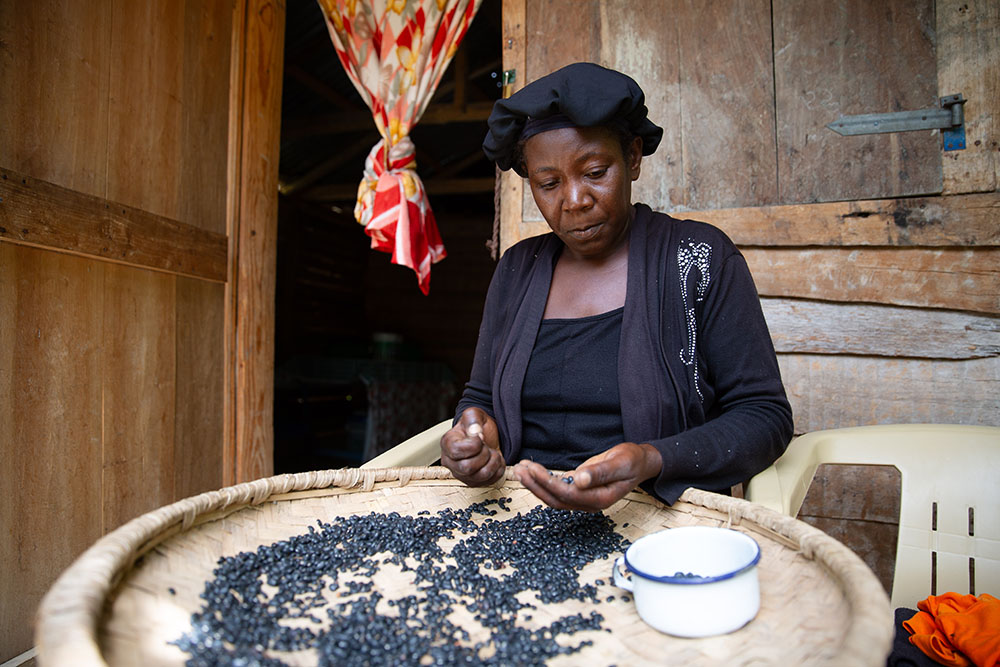
Hunger in Haiti is a crisis in and of itself. 5 million people — approximately 45% of the country’s population — are facing acute levels of food insecurity.
This is also a crisis that’s been in the making for years, impacted in part by internal factors, but also aided by external ones. As recently as the 1980s, the country was largely self-sufficient with food — particularly rice. However, aggressive American trade policies from the 1990s left nearly half of the food being consumed in Haiti — including 80% of rice and all cooking oils — coming from imports. Tariffs protecting farmers in Haiti were slashed, and the influx of American rice imports devastated the country’s agricultural sector.
Today, Haiti remains one of the hungriest countries in the world. Cases of childhood malnutrition in 2023 went up by 30% compared to 2022. Moreover, the UN estimates that approximately 1.4 million people (12% of the population) currently live one step below the technical threshold for famine.
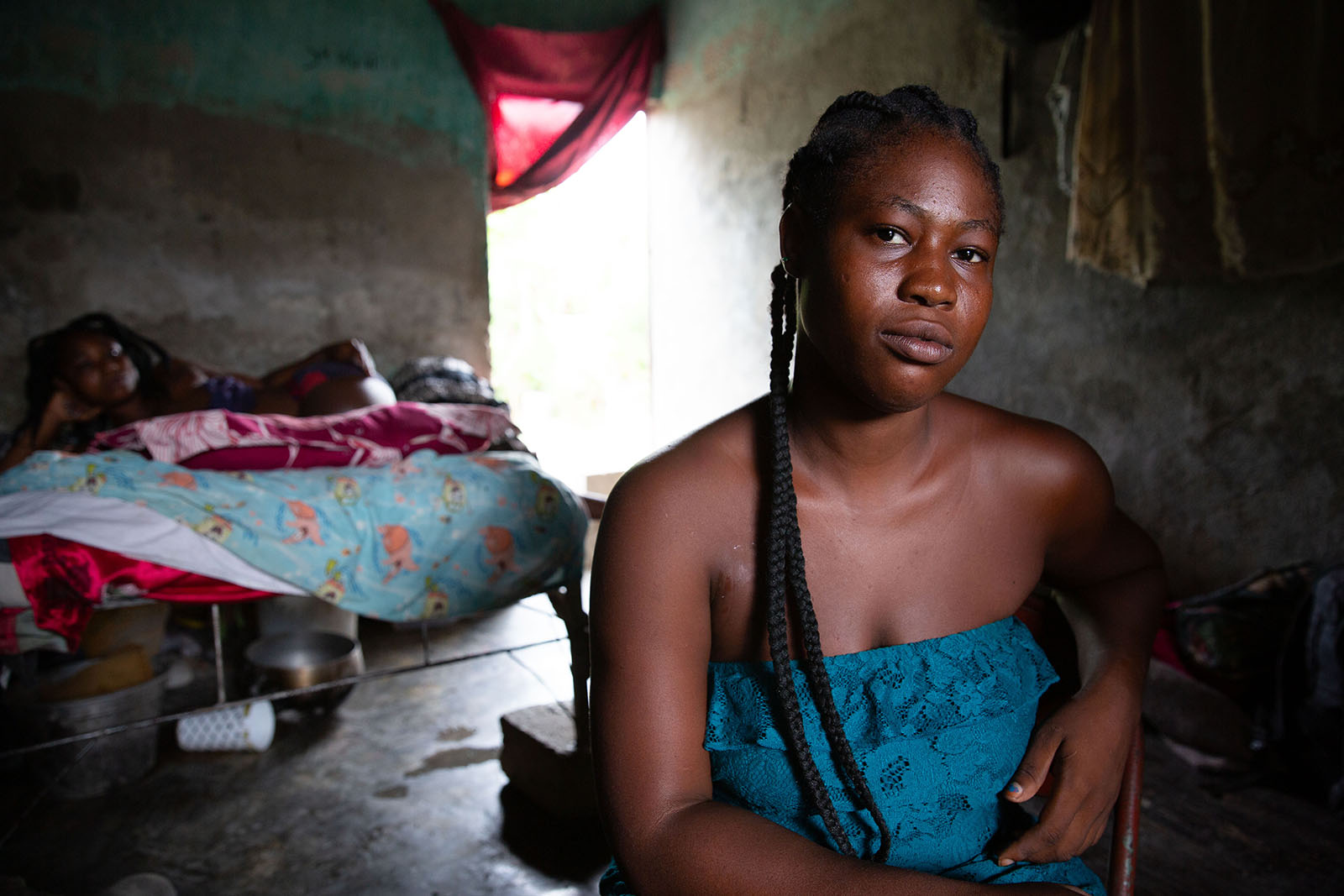
“The cycle and level of violence over the past year has led to increases in sexual and gender-based violence,” says Kladstrup. Between January and October, 2023, cases of rape increased by 49% compared to the same period in 2022. Even more distressing: In 2023, 80% of women and girls in Cité Soleil (out of a population of roughly 300,000) reported experiencing one or more forms of gender-based violence. The UN estimates that 1.2 million people overall have been affected by GBV.
Sexual violence has become a weapon of war. Women and girls make up the majority of the 362,000 people who have been displaced by the violence — half of whom are still in Port-au-Prince. Even if they have escaped the fighting, they remain at risk for both physical and psychological violence and trauma.
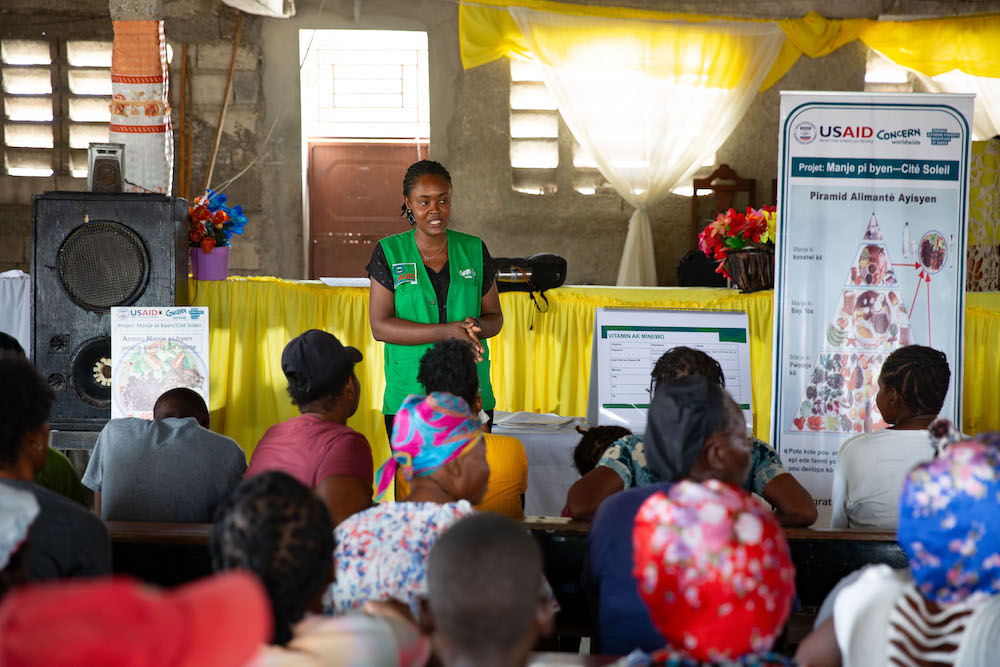
Even greater than food-insecurity in Haiti in 2024 is health-insecurity, with 4.7 million Haitians requiring some form of humanitarian assistance focused on healthcare. A lack of infrastructure around clean water and sanitation has left 45% of the country without access to potable water. This has led to Haiti becoming one of the hotspots in the global cholera epidemic, with over 72,000 cases registered as of October, 2023.
Despite an increase in need, hospitals and clinics around the country have become largely nonfunctional due to a high number of attacks and a low stock of supplies. Between January and August, 2023, 40 doctors were kidnapped. Those who remain in the country and working often face more patients than they can realistically treat, each in critical need. Medicine, blood, and other essentials have also become scarce.
Concern has been in Haiti since 1994, when we responded to Hurricane Gordon. Over the course of 30 years, we have responded to every major emergency in the country, including the 2010 and 2021 earthquakes, Hurricane Tomas (2010), and Hurricane Matthew (2016).
In early 2024, we escalated our emergency response in Haiti to meet the increasing needs, thanks in part to a $2.1 million grant from USAID to assist over 32,800 people affected by the country’s hunger crisis. This assistance includes electronic vouchers that help families purchase from local vendors. We are also working with local authorities and communities to prevent and mitigate the spread of cholera through waste removal, handwashing stations, and hygiene kit distribution. In collaboration with our local partners, Concern has also improved access to services, including psychosocial support, for survivors of sexual and gender-based violence. In 2023, we provided care to 3,077 people.
Despite the prevalence of violence, Concern Haiti’s Kwanli Kladstrup believes that peace is achievable — and necessary: “Prevention of future violence, and sustained support for the most vulnerable — especially children — should be our guiding principles to ensure the next generation does not pursue violence as its only option. The potentially violent actors of tomorrow are the children of today. Therefore, it is most important that their rights to education, good health, and protection are fulfilled; and right now that is just not happening.”